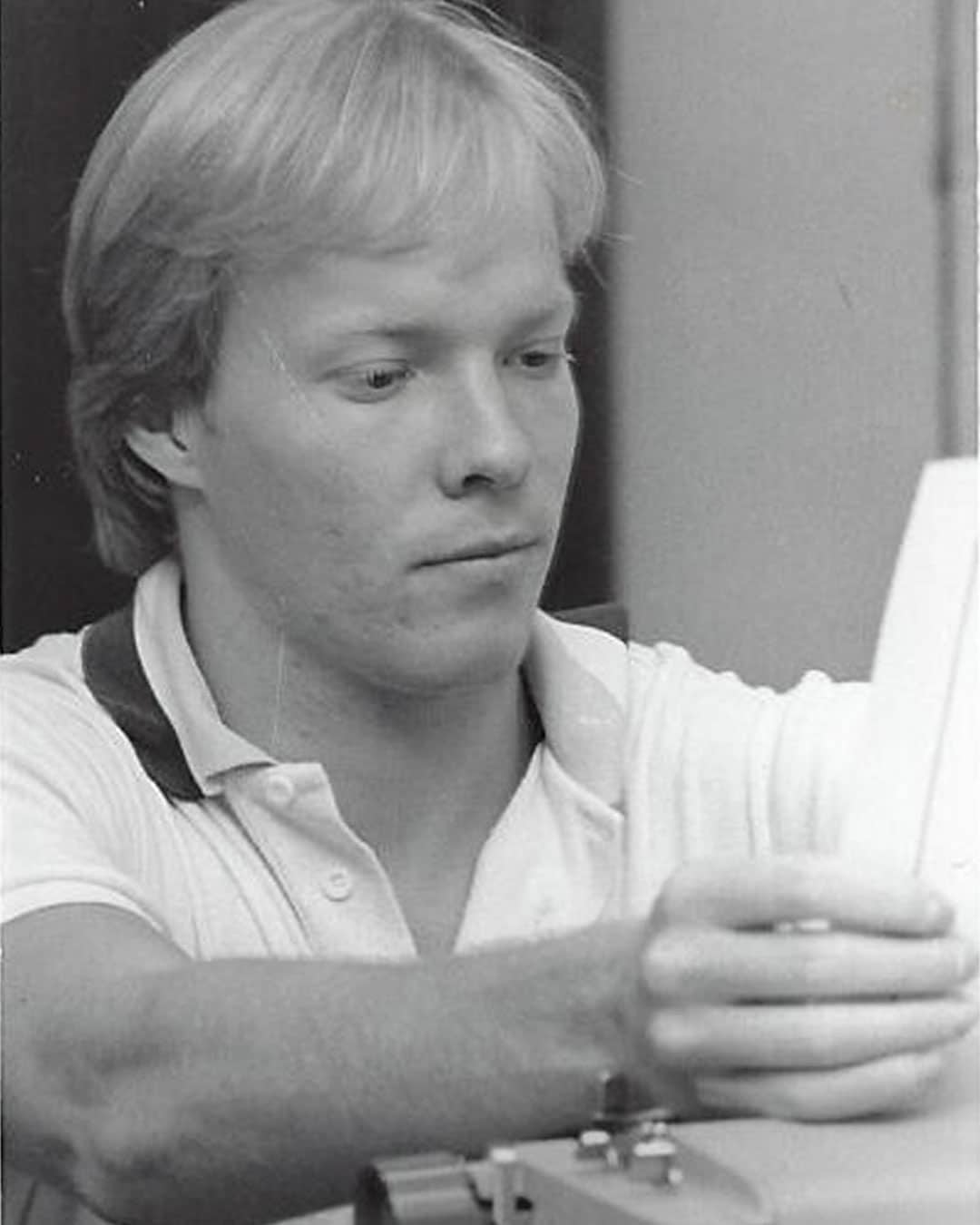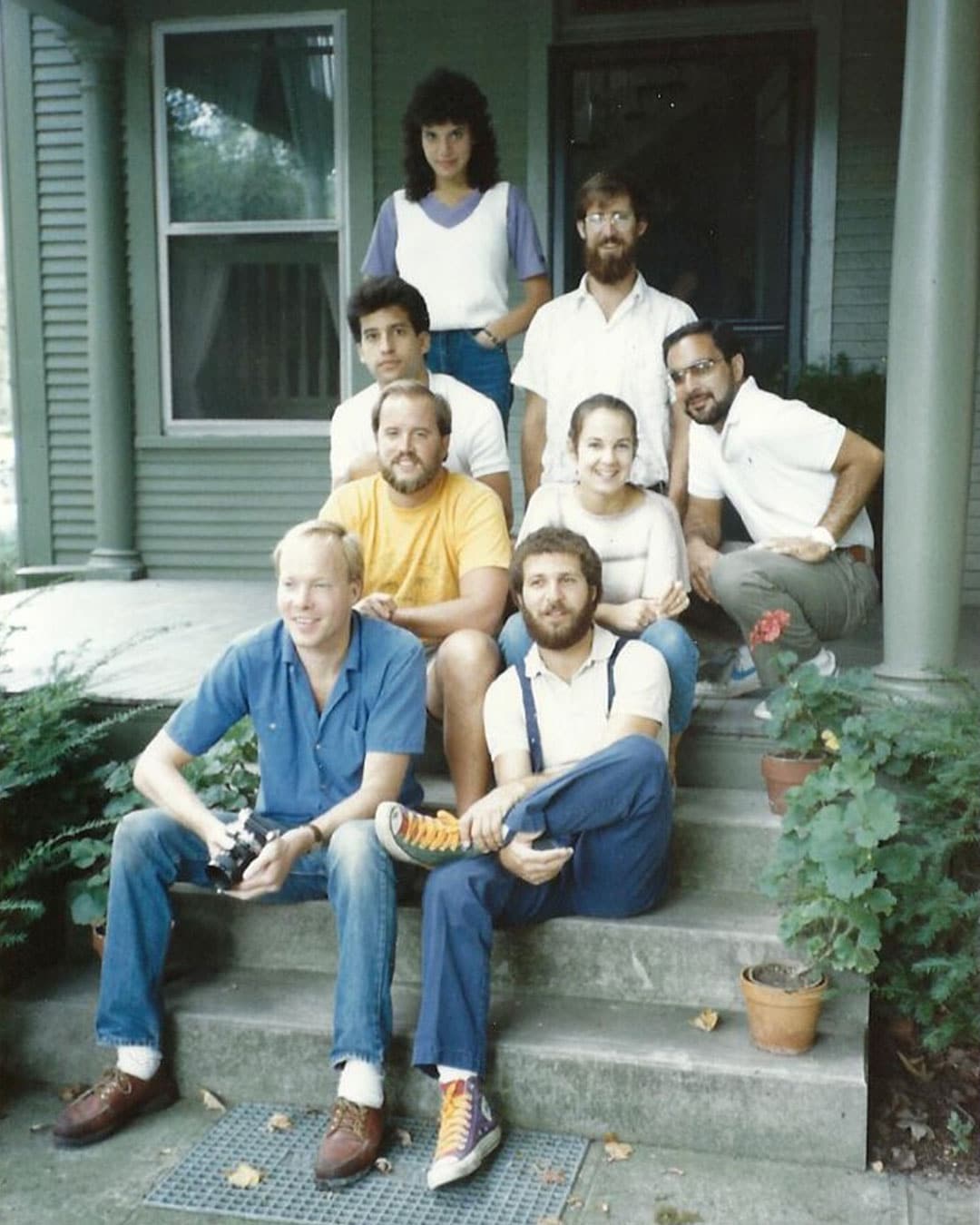By Vivian DiSalvo (Class of 2026), with Jim Sexton (’81)
A simple evening spent cutting his parents’ lawn changed Jim Sexton’s (’81) life. He began college at UT as an indifferent student, but that soon changed after his neighbor stopped him and his mower with a single question.
“My neighbor worked for the Vol Network, assisting with The Johnny Majors Show, and asked if I’d like to join him,” says Sexton. “They needed someone to deliver the show tapes to Middle and West Tennessee TV stations so it could air on Sunday. That meant John Ward, the legendary broadcaster, would be my boss.”

The show typically finished filming around midnight every Saturday during football season, which meant Sexton would have to drive all night, relying on paper maps to make the nearly 800-mile roundtrip from Knoxville to Memphis.
“None of that bothered me,” recalls Sexton. “I was excited to get a behind-the-scenes look at some of my heroes.”
The show began listing him as “Jim Sexton: Traffic Engineer” in the credits, something Ward never mentioned. Sexton’s father and family friends noticed it, making him somewhat of a celebrity among his circles.
Coach Majors, head football coach at UT from 1977–92, also took to calling Sexton the “Memphis Flash” when he saw him in between filming.
“Every time he saw me in the studio, he would shout it out, giving me a morale boost for the drive ahead,” says Sexton. “But those road trips were still grueling.”
They also led to some adventures. Over the course of multiple weekends, he once tried a variety of cars, planes, and buses to make his journeys.
“Several times my poor planning got me in trouble, leading to last-minute car loans from friends and incorrectly booked flights,” recalls Sexton. “Following a bus trip to Memphis, I realized I had not planned for getting the tapes from the bus stations to the TV stations. I saw cab drivers hanging out, so I pleaded with them to deliver the tapes and both gentlemen mercifully agreed.”
At the studio, Sexton had only small interactions with Ward. However, he got to know Ward when he picked up his paychecks.
After two years of traveling for The Johnny Majors Show, Sexton received a promotion. Ward asked him to work UT basketball games as his scoreboard reporter. This included taking notes about the game for Ward to review during timeouts and halftime and phoning other games around the country for scores.
“During the broadcasts Ward always had extensive notes in front of him,” says Sexton. “He would spend hours preparing for each game but only used a fraction of his notes.
“By watching him work, I learned the value of research and meticulous preparation,” adds Sexton. “Ward had essentially taught me journalism, so an indifferent student finally got excited about school and became a journalism major.”
Sexton also began writing for the Daily Beacon and working as a photographer for the Volunteer yearbook.
These experiences at UT launched his long career in media, which the College of Communication and Information recently captured in detail. He worked as a magazine editor at Whittle Communications in Knoxville; as an editor and writer with USA Weekend in Washington, DC; as the web editor for HGTV.com in Knoxville; and as head editor for food and shelter websites for Time Inc. in Birmingham, Alabama.

The final chapter of his career brought Sexton back to sports coverage—this time bass fishing— as the editor of Bassmaster.com.
“Creating content about fishing tournaments had a lot in common with covering UT sports,” says Sexton. “We needed to find the interesting storylines and showcase the drama while getting the facts right, just like John Ward and my education at UT taught me.”